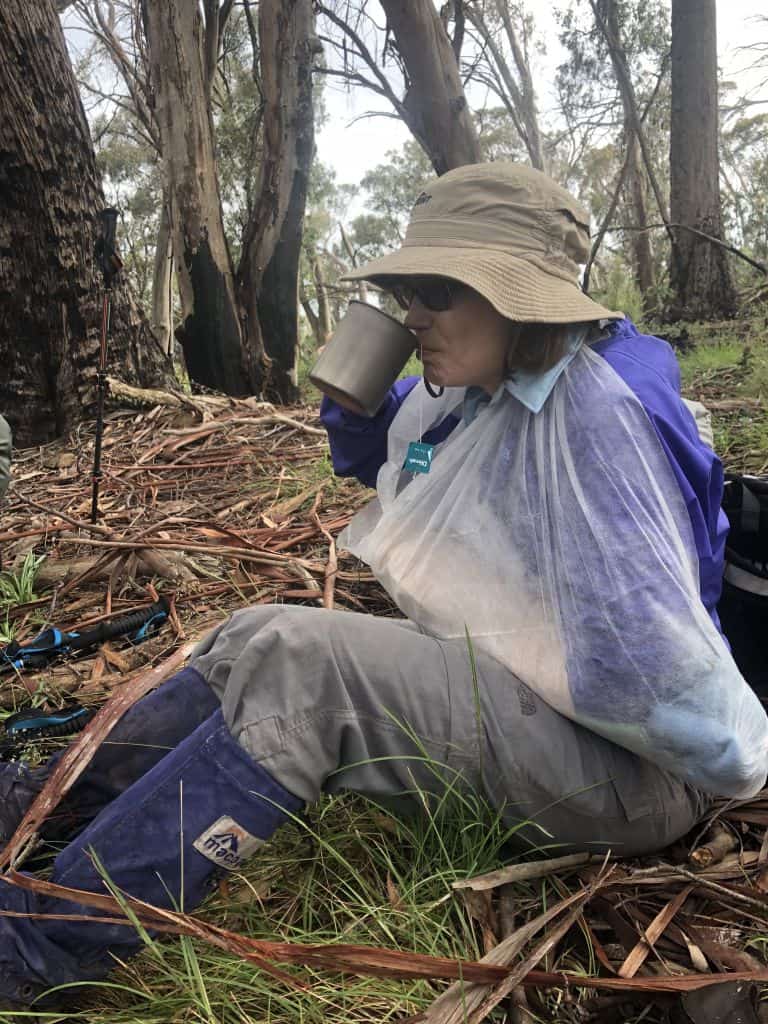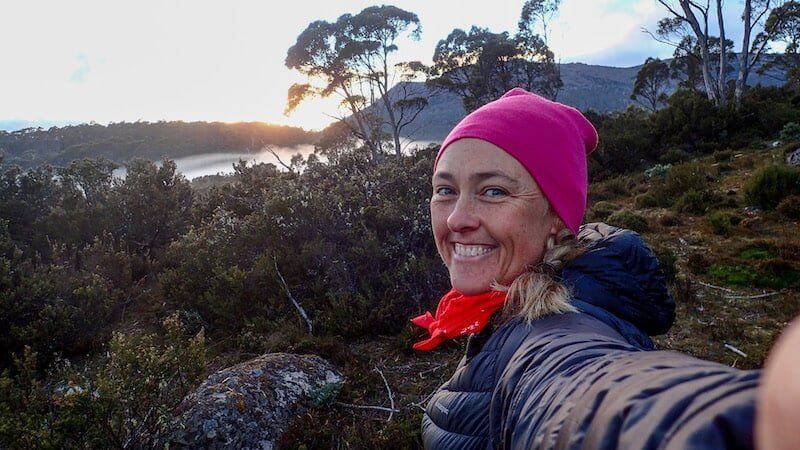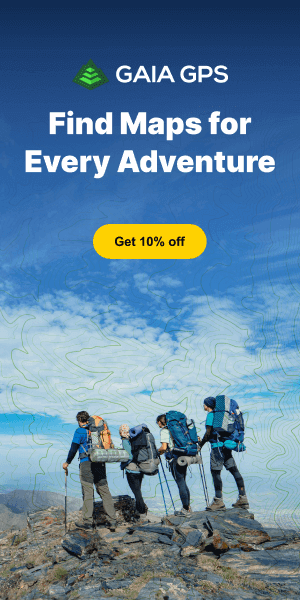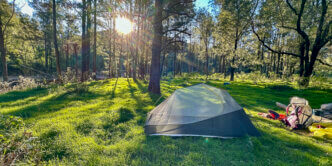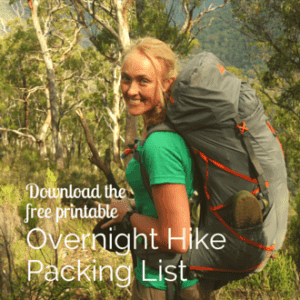Welcome to my little corner of the web-o-sphere. If you’ve found yourself here, I am guessing it’s because you love getting out in the great outdoors for bushwalking, hiking and other adventures… or maybe you’re just getting started and need some tips, how-to’s and encouragement to give it a go.
I’ve created this page as an easy way to help you get started, where all the basics are in one place.
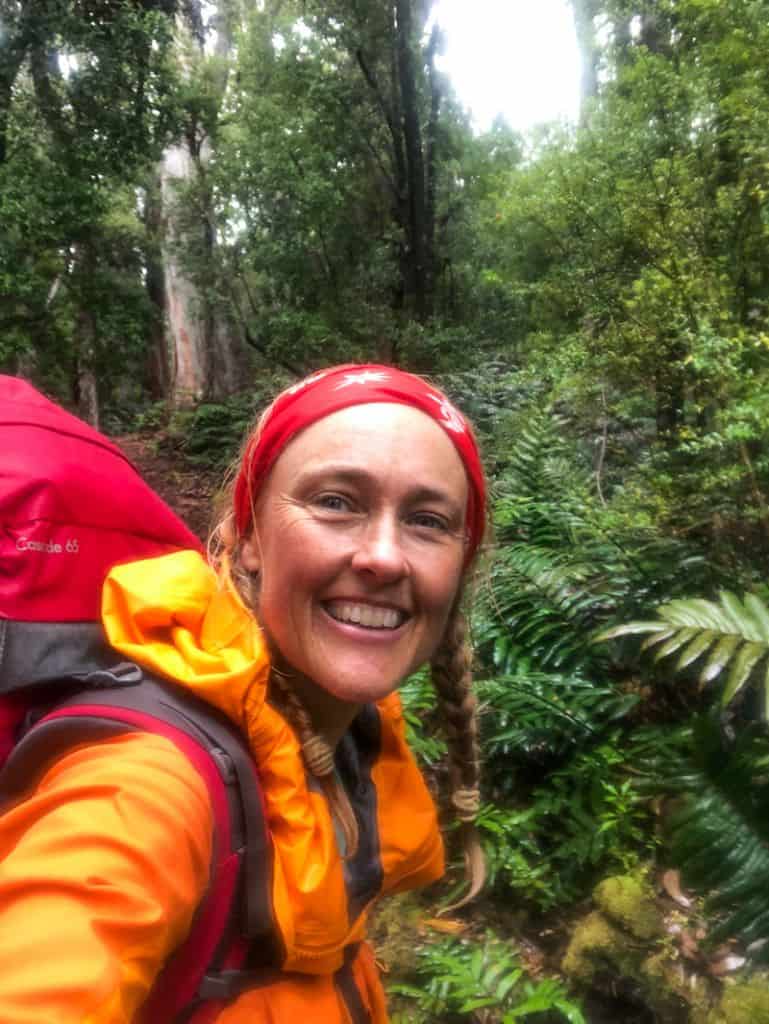
Food for Hikes
There’s lots of options when it comes to food for the bush, but the main tips I’d give you is keeping things lightweight. This tip holds true for everything we need to carry on our backs, so always think about ways to reduce weight. Trust me, after a few hours on your feet, you’ll be glad you didn’t bring heavy tinned food. Here’s my best posts on getting started with food:
- Easy Hiking Food for Overnight Trips
- Lightweight Hiking Recipe Book
- Tips for Dehydrating your own food
- Dehydrating Hummus and Dehydrating Dips (lunches)
- How to pack cheese
- Recipe: Mango Chicken Curry
Also checkout the Food category in the main menu for loads more ideas.

Water for Hikes
Carrying the right amount of water when you’re out hiking is absolutely essential. Because each litre of water weights 1 kg and we want to keep the weight of our backpacks low, it’s ideal if we can collect and treat water that we pass along the way from creeks, rivers and streams. Here’s my comprehensive article on treating drinking water. It’s not always possible to do that, so you need to make sure you take enough from home to suit the conditions and trip you’re doing. A 600ml bottle of water from the supermarket is not enough… trust me!
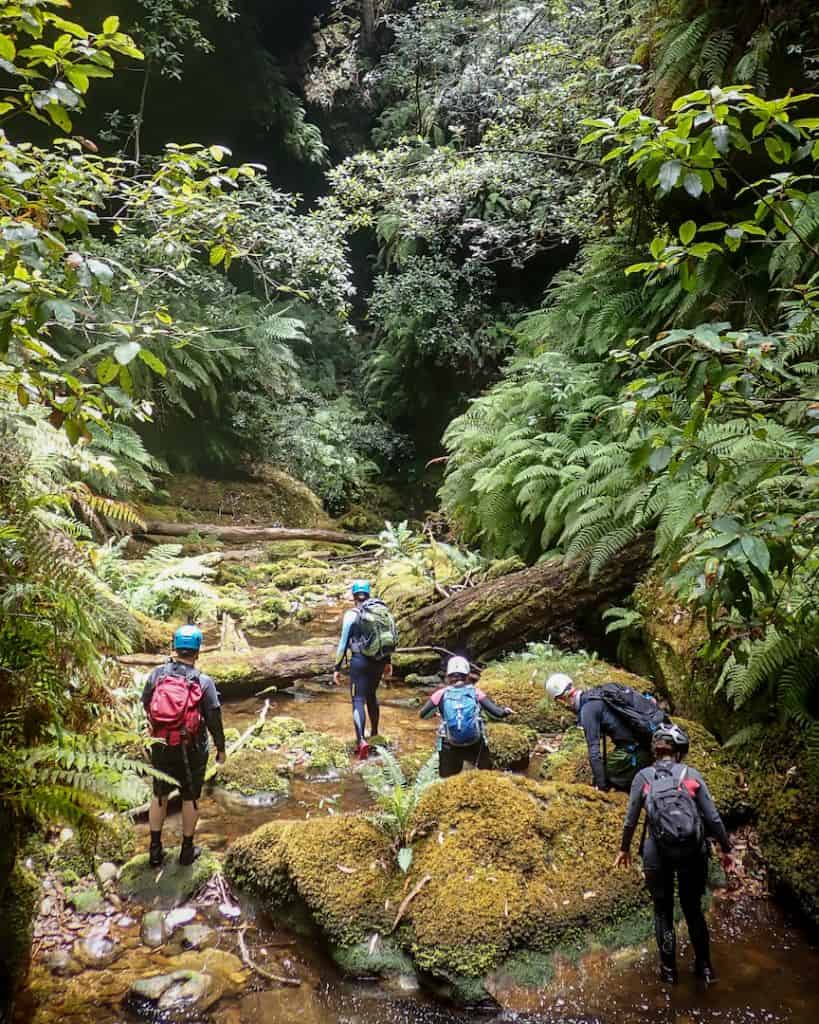
Shelter – Tents, etc
Being able to protect ourselves from the elements is one of the keys to a safe and enjoyable time spent in wild places. Modern shelters can take many forms such as tents, bivvy bags, hammocks and lightweight fly-only solutions. In some circumstances, it’s possible to use natural shelters such as caves and overhangs! If you’re just starting out and budget is an issue, you may be able to borrow a tent or hire a tent. Don’t forget to look for lightweight tents, not those made for car-camping. By lightweight, I mean anything that is approx 1kg or less per person. If there’s 2 or 3 people sharing one tent, don’t forget to split up the separate pieces (tent, fly, pegs & poles) between each of you to distribute the weight around.
Gear for Hikes
Here’s my top articles on what gear to take and how to pack. You can also sneak a peek inside what I take on an overnight hike:
- How to pack for a day walk
- How to pack for an overnight walk
- How to adjust your backpack
- How to waterproof your pack
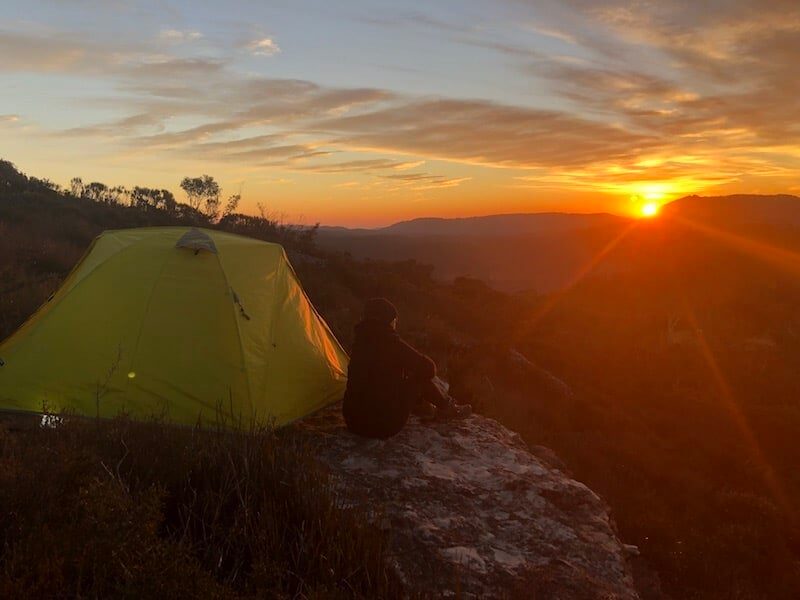
How to navigate
I’ve created a few resources to help you learn how to read a map, as well as use a compass. There’s also a stack of apps and gadgets that can help you on the technology side of things, but remember, batteries run flat, software can fail, satellite coverage might be limited, so having a map (and knowing how to use it!), is a great way to stay safe and avoid getting navigationally challenged!
- How to navigate – Part 1
- How to navigate – Part 2
- How to navigate – Part 3
- Apps for bushwalking and hiking
- Attend my 2 day navigation course!
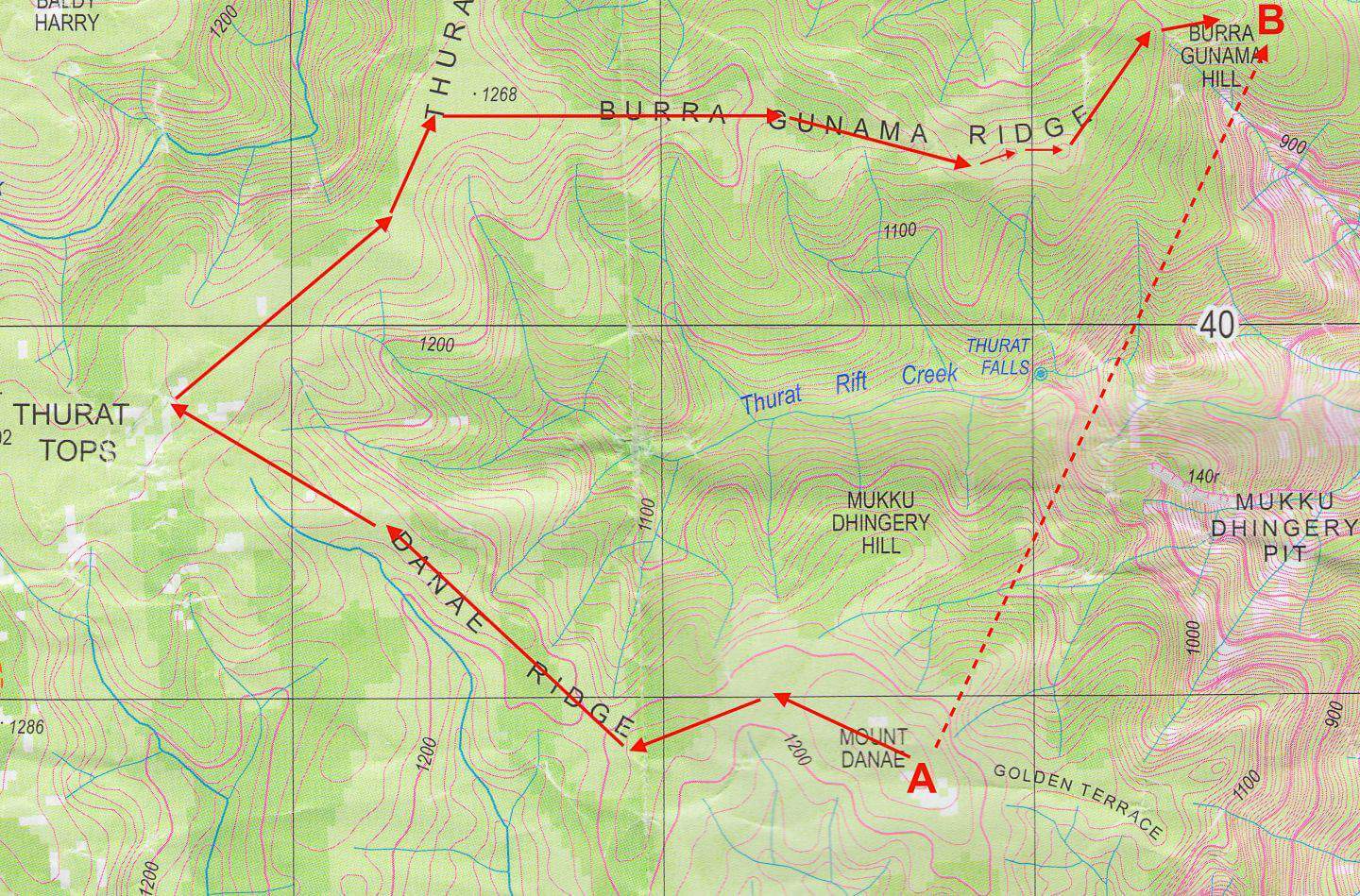
Safety for hiking
We all want to have a great time out in the bush. However, even when you’ve done everything right, things can still go wrong. Here’s some basic info and things to bear in mind before you go hiking. And don’t forget the TREK acronym. T-Take what you need, R-Register your intentions, E-Emergency Communications, K-Know your route and stick to it.
- Before you leave on a hike… Trip Intentions Form
- First Aid Training
- Hiker’s First Aid Kit
- Bushfire Safety for Hikers
- Emergency Communications
